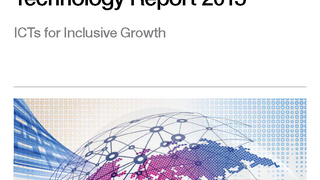According to the report (in Dutch), disruptive technologies – particularly Big Data and the Internet of Things – will have a strong impact on business and will drive changes in the labour market of the future. More jobs will be lost than are created as a result of these changes,: worldwide, 2 million jobs will be gained but 7.1 million will be lost. Businesses will offer more short-term jobs and fewer permanent contracts. There will be more people employed in architecture, engineering, IT and mathematics roles, and fewer in office and administrative roles.
The disruption of the labour market will require employees to adjust their skill sets: 65 per cent of children in primary school today will work in jobs that don’t yet exist, and in existing job roles, a third of core skills will change. According to the researchers, companies do acknowledge these changes, but at present they are still adapting too slowly.
It emerges that the Fourth Industrial Revolution also has a disproportionately strong negative impact on women’s economic prospects. As a result, the gender gap in the labour market is actually widening rather than closing. According to the report, promoting women’s participation in the employment market should be high on the agenda.
The WEF research report is based on a survey of the 100 leading global employers in nine different industry sectors (as classified by the WEF) regarding their expectations in the field of new jobs and specialisations in their sector by 2020. A total of 371 of the companies approached subsequently took part in the survey, resulting in a total of 1,346 respondents.
The Fourth Industrial Revolution
The First Industrial Revolution started in about 1760 and saw water and steam power used to mechanise production, with the introduction of electric power and mass production creating the Second Industrial Revolution from 1840 - 1870. In the past 30 years, electronics and information technology used to automate production took civilisation through the Third Industrial Revolution. The Fourth Industrial Revolution is underway, and characterised by the digital revolution that’s been taking place since the middle of the last century. Its fusion of technologies blur the lines between the physical, digital, and biological spheres.
The complete Future of Jobs report from the World Economic Forum can be read here.



